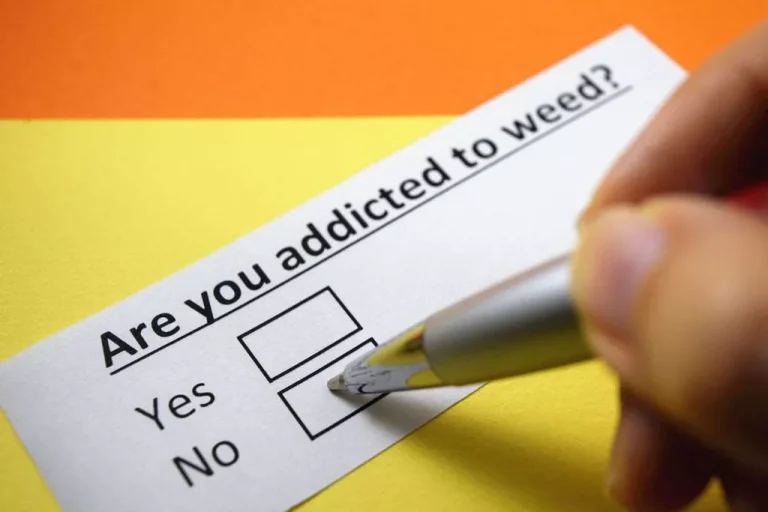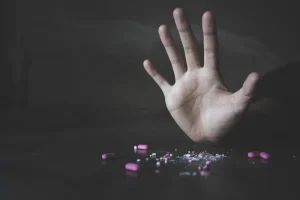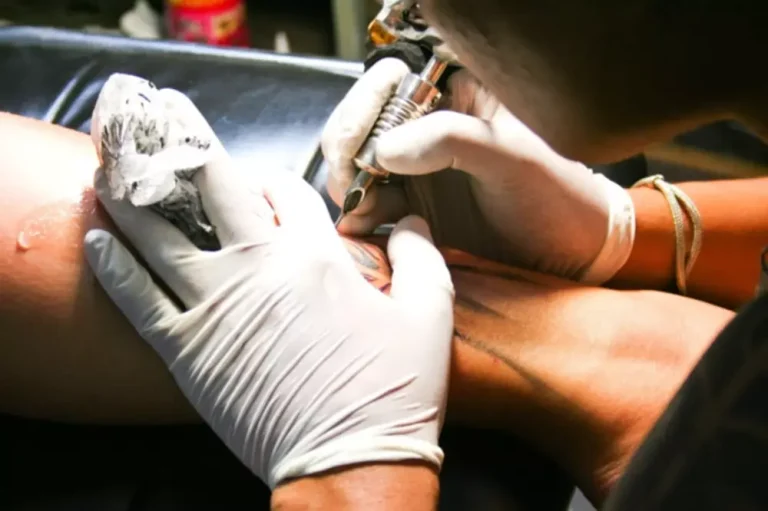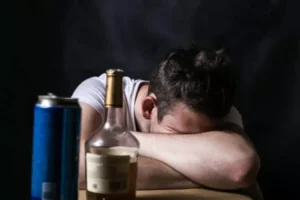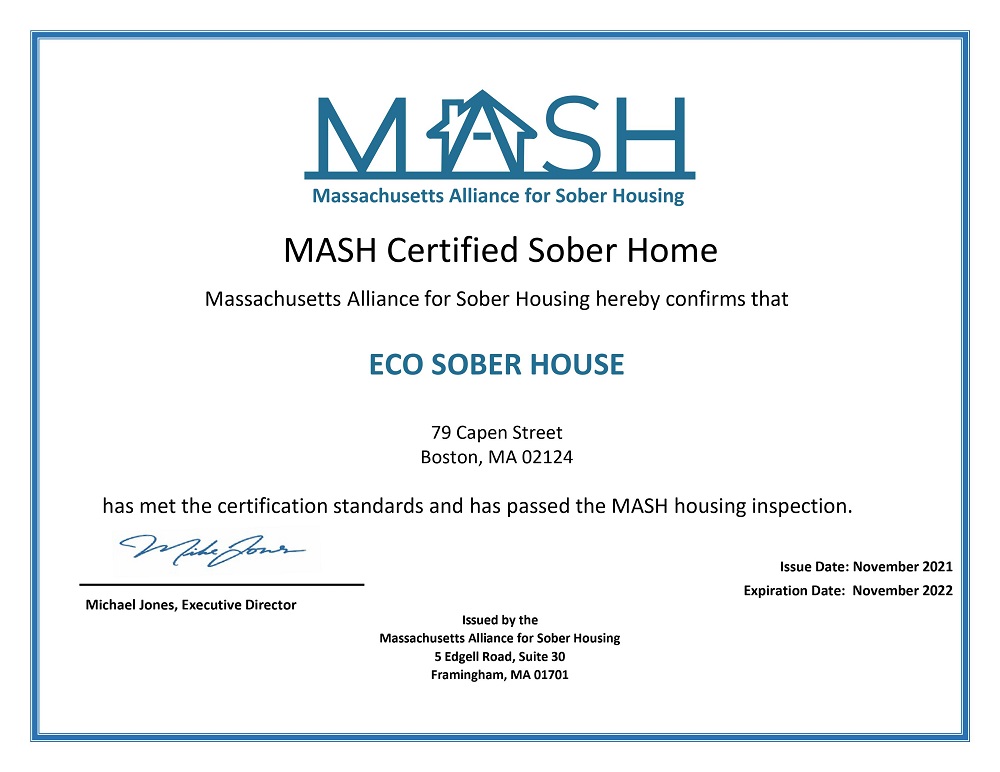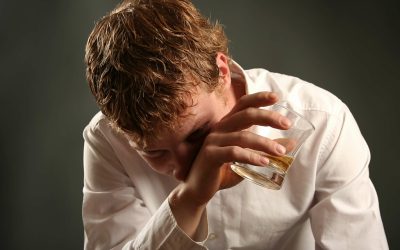The necessity of inpatient treatment for alcohol withdrawal depends on factors such as the severity of withdrawal symptoms, the presence of co-occurring medical or psychiatric conditions, and the individual’s support system. During alcohol detox, healthcare professionals may prescribe various medications to manage withdrawal symptoms and prevent complications. Benzodiazepines, such as diazepam (Valium) or lorazepam (Ativan), are commonly used to prevent seizures and reduce anxiety. These medications work by enhancing the effects of GABA, a neurotransmitter that helps calm the central nervous system.
By understanding the steps of alcohol withdrawal, drinkers can see beyond them and, in many cases, continue to work toward improvement. The dehydrating effect of alcohol affects your skin and your hair significantly. As you have four weeks of better hydration, improved sleep and better overall health, it will noticeably affect your skin and hair. If your alcohol use distracted you from skin and hair hygiene, then the effects of sobriety can be even greater. After four weeks of hair growth without the effects of alcohol, your hair may appear fuller and more supple.
What Is Alcohol Withdrawal Syndrome?
It’s difficult to predict who will and who won’t experience alcohol withdrawal — and how severe it will be. Go to the nearest emergency room or call 911 (or your local emergency service number) if you or a loved one has any concerning symptoms of alcohol withdrawal. Jessica graduated from the University of South Florida (USF) with an English degree and combines her writing expertise and passion for helping others to deliver reliable information to those impacted by addiction. Informed by her personal journey to recovery and support of loved ones in sobriety, Jessica’s empathetic and authentic approach resonates deeply with the Addiction Help community. Anticonvulsants may also be used because there is a chance you can experience an alcohol withdrawal seizure during the peak of your symptoms. When you give up alcohol, having been a dependent drinker, you’ll move through various stages of recovery.
Long-term Medications After Detox
- Some people experience prolonged withdrawal symptoms, like insomnia and mood changes, that can last for weeks or months.
- “I’m back working, my skin’s cleared up, and I’ve cleaned up the mess I’ve made of my life. The sad truth is, I miss drinking, even after all the hell it has caused. But to go back will be my death.”
- As a Regional Director, Mason is responsible for all aspects of the South Lake Tahoe facility, including staffing, finances, rehabilitation services, community activities, certification and licensing and facility maintenance.
- Ultimately, it’s essential to consider the quality of care and potential long-term benefits when evaluating costs.
- While our content is a valuable resource, it’s important to remember that it is not a replacement for professional medical advice.
Remember you are facing a difficult challenge during alcohol withdrawal, but you are not alone. There are many resources available to help, including peer support groups, counseling, therapy, and inpatient rehabilitation. When someone drinks alcohol for a prolonged period of time and then stops, the body reacts to its absence. This is alcohol withdrawal, and it causes uncomfortable physical and emotional symptoms.
Do not hesitate to seek medical attention during any phase of alcohol withdrawal. Behavioral treatment programs are helpful for people who want to quit drinking. These programs involve working with a team of mental health professionals in a group and individual setting. A rare but very serious syndrome called delirium tremens can occur during alcohol withdrawal. Also known as DTs, an estimated 2% of people with alcohol use disorder and less than 1% of the general population experience them.
Mild to moderate alcohol withdrawal treatment
Alcohol withdrawal syndrome is a set of symptoms that occur when someone who is physically dependent upon alcohol suddenly stops drinking or drastically reduces their alcohol intake. However, try not to have too many firm expectations, as symptoms can continue for multiple weeks in some https://yourhealthmagazine.net/article/addiction/sober-houses-rules-that-you-should-follow/ people. There is no exact timeline for alcohol withdrawal, and individual factors, such as the level of dependence on alcohol, will influence it. You don’t need to be diagnosed with alcohol use disorder in order to quit drinking. If alcohol is interfering with your health or your personal, financial, or professional life, consider quitting. Healthcare providers typically prescribe short-term medications to relieve the symptoms of mild to moderate alcohol withdrawal.
Alcohol withdrawal is a potentially serious complication of alcohol use disorder. It’s important to get medical help even if you have mild symptoms of withdrawal, as it’s difficult to predict in the beginning how much worse the symptoms could get. The main ways to prevent alcohol withdrawal are to avoid alcohol altogether or to get professional help as soon as possible if you think you’re developing alcohol use disorder. Your healthcare provider will recommend and encourage treatment for alcohol use disorder. Symptoms of alcohol withdrawal tend to peak 24 to 72 hours after your last drink.
Non-physical symptoms, like cravings and desire for the comfort alcohol provides, may become more noticeable as the distraction of physical symptoms subsides. This is where symptoms are usually the most severe, with some individuals displaying delirium tremens — hyperactive autonomic activity that can lead to cardiac collapse. Delirium tremens can last up to 5 days, with a mortality rate of up to 37%. This highlights the severity of the condition and the need for immediate medical attention. This range stayed the same whether they were usinghome remedies for alcohol withdrawalor detoxing at a medical facility.
What are the Side Effects and Risks from Alcohol Withdrawal?
This process temporarily restores homeostasis, or chemical balance, in an effort to counteract the impact of long-term alcohol use on the brain. Many involve a combination of group psychotherapy (talk therapy) and medications. It’s important to be honest about your alcohol use — and any other substance use — so your provider can give you the best care. Each of these symptoms can increase in intensity depending on the severity of the withdrawal. Copyright © 2025, AddictionHelp.com The information provided by AddictionHelp.com is not a substitute for professional medical advice. View our editorial content guidelines to learn how we create helpful content with integrity and compassion.
Some are finally able to get some sleep at day five, whereas others still have problems sleeping. “It’s been really tough, constant inner voice trying to persuade me just the one-night drinking again would be OK. I have just had to surf the urges, keep busy, and use all my strength.” “Went from shaky to wanting to scream all day. I almost talked myself into ‘just one more’ several times, but somehow made it through.” For many, it’s very difficult to get past the third day of unrelenting shakes and sweats without picking up a drink. “Last night was horrible. I was soaking wet with sweat, I jumped a few times in my sleep, and I had very vivid dreams.” “I think I’ve seriously damaged my brain. Maybe a seizure. Sudden sharp pains in the head. Visual, auditory, and tactile hallucinations. Confusion. Couldn’t walk right.”
- Tim also spent several years as CEO to Eric Clapton’s facility in the Caribbean, Crossroads of Antigua.
- Symptoms that occur after two weeks are usually more psychological in nature and can last for several months in some cases.
- “Most of my withdrawal symptoms are gone, but I still have sharp pains in my head, can’t sleep, and get night sweats.”
- A trained mental health professional can help you identify and address the underlying issues that may have contributed to your alcohol abuse, such as stress, trauma, or mental health disorders.
- Insurance coverage is also significant; many plans offer detox, rehabilitation, and therapy coverage.
- “My worst withdrawal symptom is that my brain does not seem to work very well. Lots of spelling errors and poor fine-motor skills. I will not even go into the insomnia.”
California Prime Recovery is dedicated to empowering individuals on their journey to recovery from substance use and mental health disorders. We provide reliable, fact-based content about behavioral health conditions, treatment options, and what to expect during the recovery process. Our materials sober house are thoroughly researched and reviewed by licensed medical professionals to ensure accuracy and trustworthiness. While our content is a valuable resource, it’s important to remember that it is not a replacement for professional medical advice. Always consult with a qualified healthcare provider for personalized guidance and treatment.
While these symptoms can be uncomfortable, they are generally not life-threatening. Most people will recover after these symptoms clear up, which can take up to 7 days. Insurance coverage is also significant; many plans offer detox, rehabilitation, and therapy coverage. Financial assistance programs or sliding scale fees may be available for those in need.
Treatment Therapies
The nervous system becomes hyperactive when alcohol is suddenly removed, causing distressing and potentially dangerous symptoms that are not within someone’s control. Severe AUD can lead to life-threatening complications and require immediate medical intervention. You don’t need to be at the point of requiring emergency attention to reach out to those around you for support. Other symptoms during this stage include disorientation and rapid heart rate. Early mild symptoms such as an upset stomach, headache, and sleeplessness can start to occur during this time.



